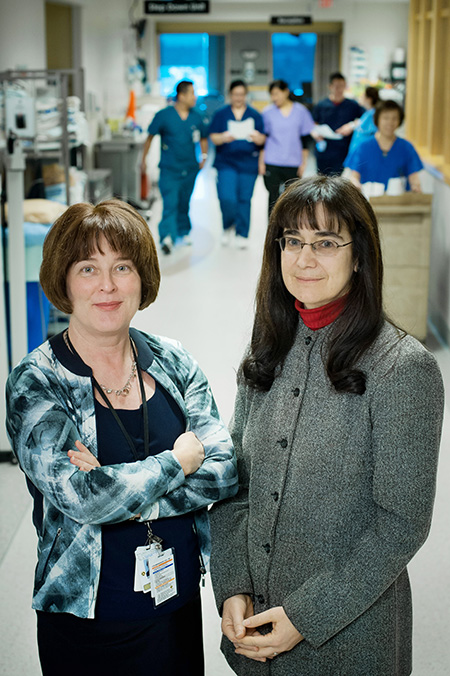A UBC survey of South African health care workers has revealed major gaps in workplace protection against tuberculosis, HIV and hepatitis.
Presenting findings at the 2014 annual meeting of the American Association for the Advancement of Science, Annalee Yassi, a Professor in the School of Population and Public Health, says issues such as confidentiality, stigma, technological capacity and staff training need to be addressed while improving hospital resources and protocols.
Preliminary results of the 2012 baseline survey of more than 1,000 health care workers in three hospitals show that more than 68 per cent of patient care staff had never been screened for TB; nearly 20 per cent were not vaccinated against hepatitis; and 55 per cent did not wear respiratory protection when needed.
Recapping of used needles before disposal and washing and reusing of gloves were common, with than 20 per cent surveyed reporting needlestick injury or unprotected exposure to bodily fluids.
Dr. Yassi and Elizabeth Bryce, a Clinical Professor in the Department of Pathology and Laboratory Medicine, are helping South Africa implement occupational health guidelines developed by the World Health Organization (WHO), says health care workers in developing countries face greater health challenges while serving significantly more patients.
“In addition to massive workloads, healthcare workers in developing countries are more likely to get sick from the workplace,” says Dr. Yassi, noting that health care workers in South Africa are at three times the risk of contracting TB than other South Africans, and more than seven times more likely to be hospitalized for drug-resistant TB.
In South Africa, 18 per cent of the adult population is HIV positive. A 2013 WHO estimate showed South Africans were almost 300 times more likely to contract TB than Americans.
“Considerable progress is being made, including better standard operating procedures and more much screening,” says Yassi. “But there’s much more we can do to ensure a healthy workplace for the international health care workforce.”
